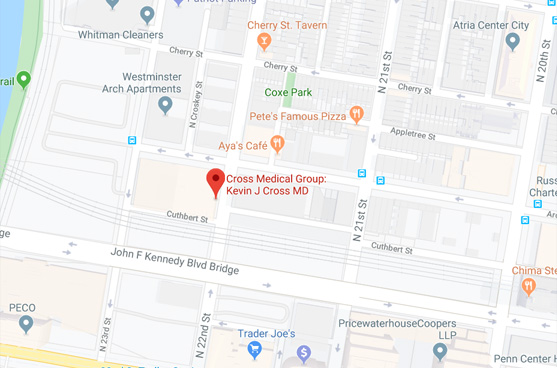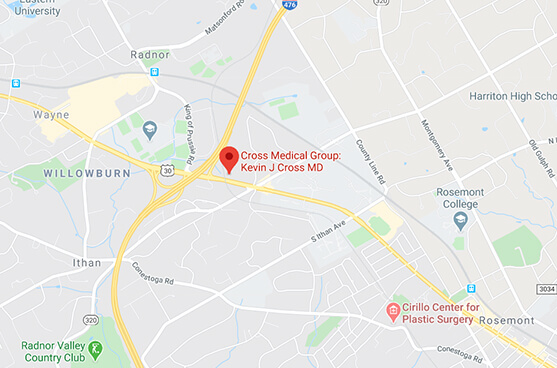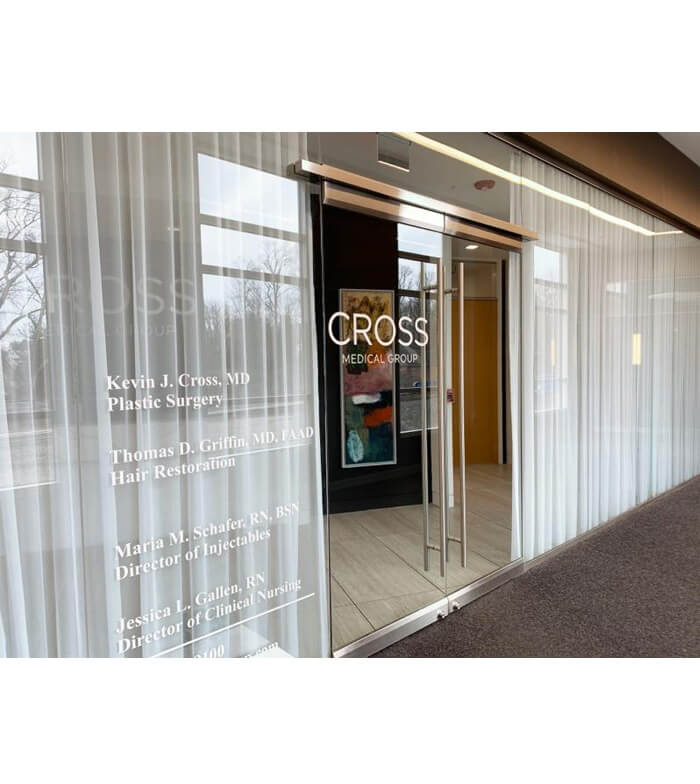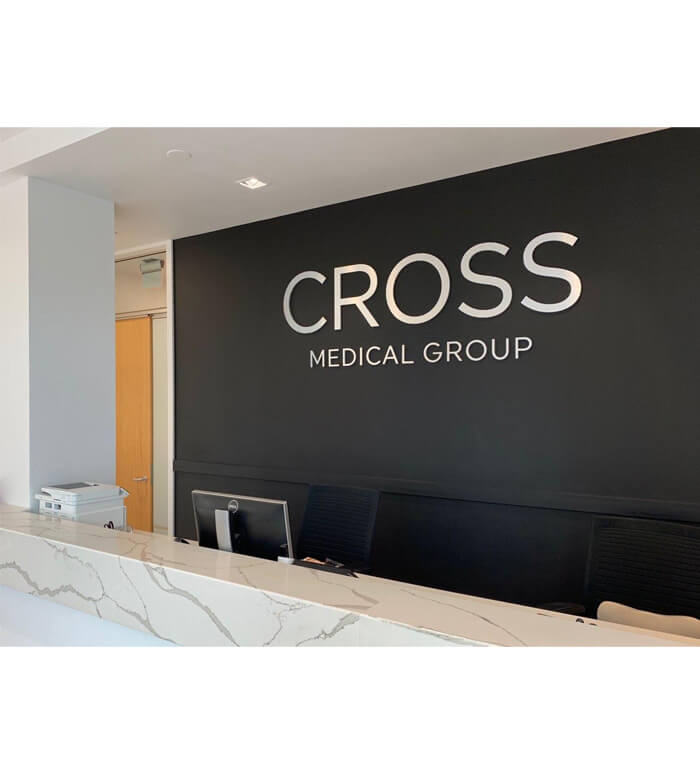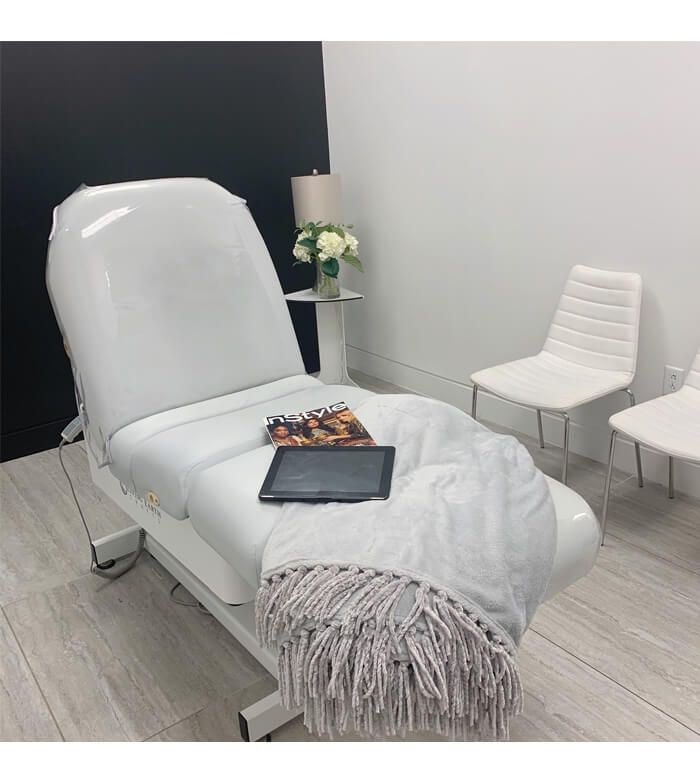Laser Hair Removal
Reduce Unwanted Hair Growth
The problem with many common ways to handle unwanted hair is that the approaches tackle only the hair itself. Shaving cuts hairs down, while waxing and plucking pull them out. They quickly grow again. Laser hair removal at the Philadelphia area's Cross Medical Group gets to the root of the problem: the follicle. By targeting and damaging the hair-production mechanisms, laser hair removal results in long-term smooth and clear skin without the need for daily or weekly maintenance.
The aestheticians selected by Dr. Kevin Cross to perform laser hair removal and other laser treatments at his Philadelphia and Villanova practices have extensive experience with light-based devices. In-depth knowledge of how light energy impacts various elements in the skin is critical for safely achieving desired results.
How Does Laser Hair Removal Work?
Follicles contain melanin-producing pigment cells that give hairs color. When light energy from a laser removal device hits these darker-pigmented cells, they heat up more than lighter-colored cells around them. The contrast is important, which is why laser hair removal works best on light skin and dark hair.
Eventually, the heat generated by the pigment cells absorbing energy damages the follicle itself, which hampers its ability to grow new hair.
Laser hair removal only works on follicles that are actively growing hairs at the time of the treatment. Since only a percentage of follicles are active at a given time, treatment of a total area requires several sessions spaced weeks apart.
What Is the Laser Hair Removal Process Like?
At a consultation to determine which areas could benefit from laser hair removal—the face, chest, back, underarms, and bikini area are popular choices—patients will learn more about how the treatment works and what to expect during and after a session.
The laser energy entering the skin creates a sensation that has been described as a snapping rubber band: quick and sharp, but well tolerated—especially when expected.
After the session, the treated skin will appear sunburned and should be protected from ultraviolet radiation exposure. The redness will gradually fade, and existing hairs will appear to grow longer before they fall out, as the impacted follicles push out their respective strands. No shaving, plucking, or waxing will be necessary for a long time after.
Any new hairs that eventually grow in will likely appear lighter and finer than the hairs that used to grow from the treated follicles. Patients who want to maintain their bare-skin results long term can schedule routine visits.
What Other Laser, Light, and Energy Treatments Are Available?
Cross Medical Group offers several non-surgical treatments that use different types of energy to promote collagen production and accomplish a range of cosmetic changes. Laser skin resurfacing uses light, similar to laser hair removal, while RF skin treatments use radiofrequency energy, and Ultherapy uses ultrasound. Dr. Kevin Cross's team of aestheticians can recommend which treatment is best for a patient's specific goals.
SCHEDULE A CONSULTATION
Contact Cross Medical Group for laser hair removal in Philadelphia (215) 561-9100 or Main Line's Villanova (610) 688-9100. You can also send a message online to inquire about a consultation, or for more information.



